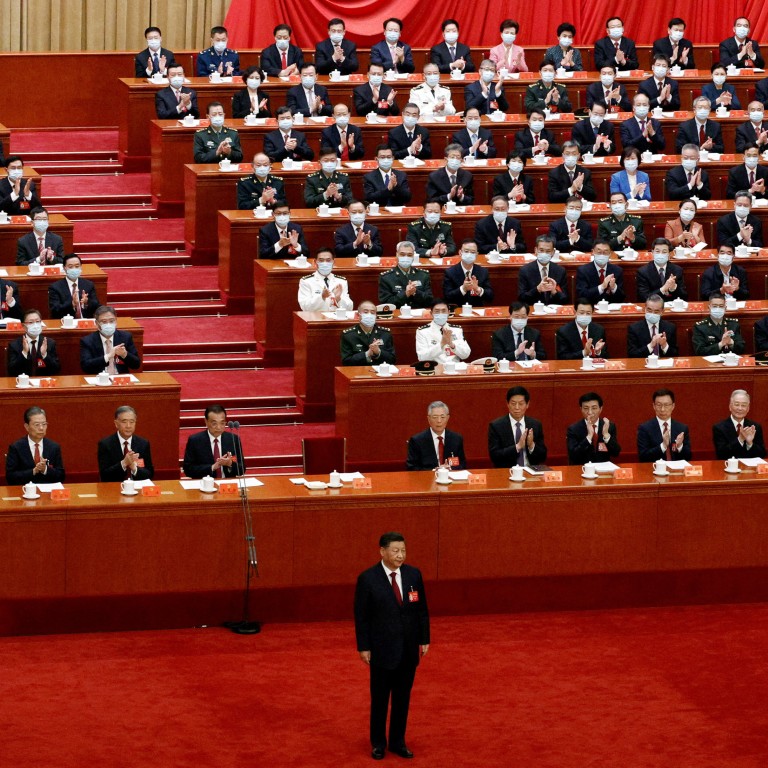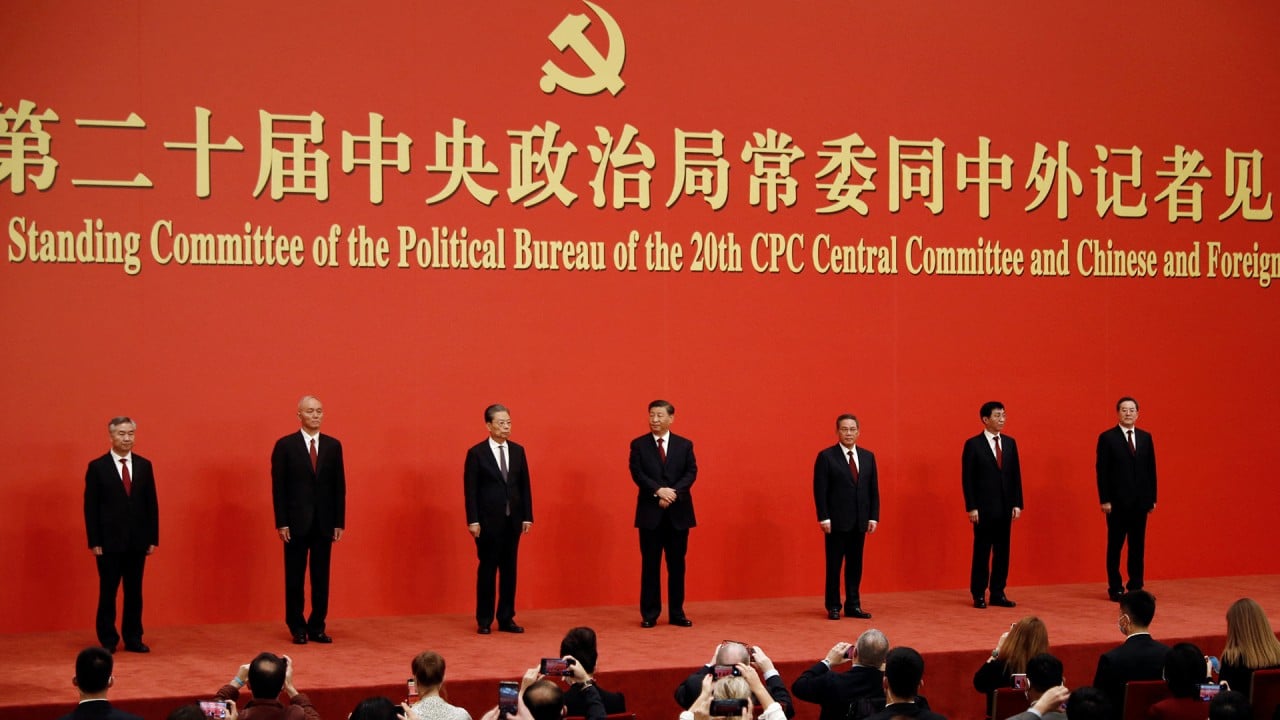
Security mission in focus with Xi Jinping’s key Communist Party appointments
- China’s president promotes former spy chief, police chief to upper levels of the Communist Party
- Promotions signify that Xi prioritises political stability over economic development, an expert says
Two security officials have been promoted to the upper echelons of the Communist Party in China, appointments that observers say underline Beijing’s growing security concern in the face of tensions with Washington and its allies.
Chen Wenqing, the 62-year-old minister of state security, landed a coveted seat in the 24-member decision-making body, becoming the first Politburo member in decades who has served as a spy chief.
As the only member of the Politburo with a background in state security, Chen, who also secured a seat in the Central Secretariat, which runs day-to-day party affairs, is expected to head the party’s top security body, the Central Political and Legal Affairs Commission.
Also in the Central Secretariat, which now has seven members, is China’s police chief, Wang Xiaohong. Over the past two decades, the body has never had more than one official from the security sector, and sometimes none.
The body is led by Cai Qi, the main steward of party affairs, who has also just been promoted to the seven-member Politburo Standing Committee.
“[We must] firmly defend national sovereignty, security, and development interests … and severely combat infiltration, sabotage, subversion, and secession by hostile forces,” he said.
Alfred Wu, an associate professor at National University of Singapore’s Lee Kuan Yew School of Public Policy, said the appointments of the two security officials signalled that Xi was prioritising stability and subversion prevention.
John P. Burns, an emeritus professor of politics at the University of Hong Kong, said the appointments of Chen and Wang signalled the party’s “insecurity” both internationally and domestically.
“If you look at the geopolitical situation, China is engaged in a more contentious situation with the US and Europe, this reflects the need to strengthen security,” Burns said.
“Domestically, the party perceives its own insecurity on issues related to Xinjiang, Tibet and urban centres. So it makes sense that Xi wants to increase party capacity to manage security.”
Chen began his career as a police officer in Meishan, Sichuan province, in 1984. He rose through the ranks of the province’s police force and its state security department, and was appointed director of Sichuan’s state security branch in 1998. In 2006, he was promoted to lead the discipline inspection commission in Fujian province.
A month after Xi took helm of the party in 2012, Chen was named a deputy head of the party’s top anti-corruption body – the Central Commission for Discipline Inspection – to help drive Xi’s signature anti-corruption campaign.
In 2016, Chen became head of the Ministry of State Security.
China’s Communist Party looks to science cadres to push back at US tech squeeze
Wang Xiaohong, a 65-year-old senior police officer and minister of public security, is also a close ally of Xi and served as Xi’s police chief in Fujian in the 1990s, when Xi governed the coastal province.
A source said earlier that Wang was also responsible for Xi’s personal security during that time.
Three years after Xi took office in 2012, Wang became the chief of the Beijing police bureau and deputy minister of public security the following year, in 2016.
He called the promotions a response to “a notable shift in US and Western policy towards an overtly security-oriented approach to China, such as the Indo-Pacific and the Quad”.
But David Goodman, director of the China Studies Centre of the University of Sydney, said it was normal for leading cadres with security backgrounds to occupy high-level positions. He said it would only be unusual if more cadres with such backgrounds were appointed to key leadership positions.
“Xi Jinping’s centrality to political processes and symbolism is another congress outcome. This holds true for the security apparatus as for all other parts of the party-state,” Goodman said.


